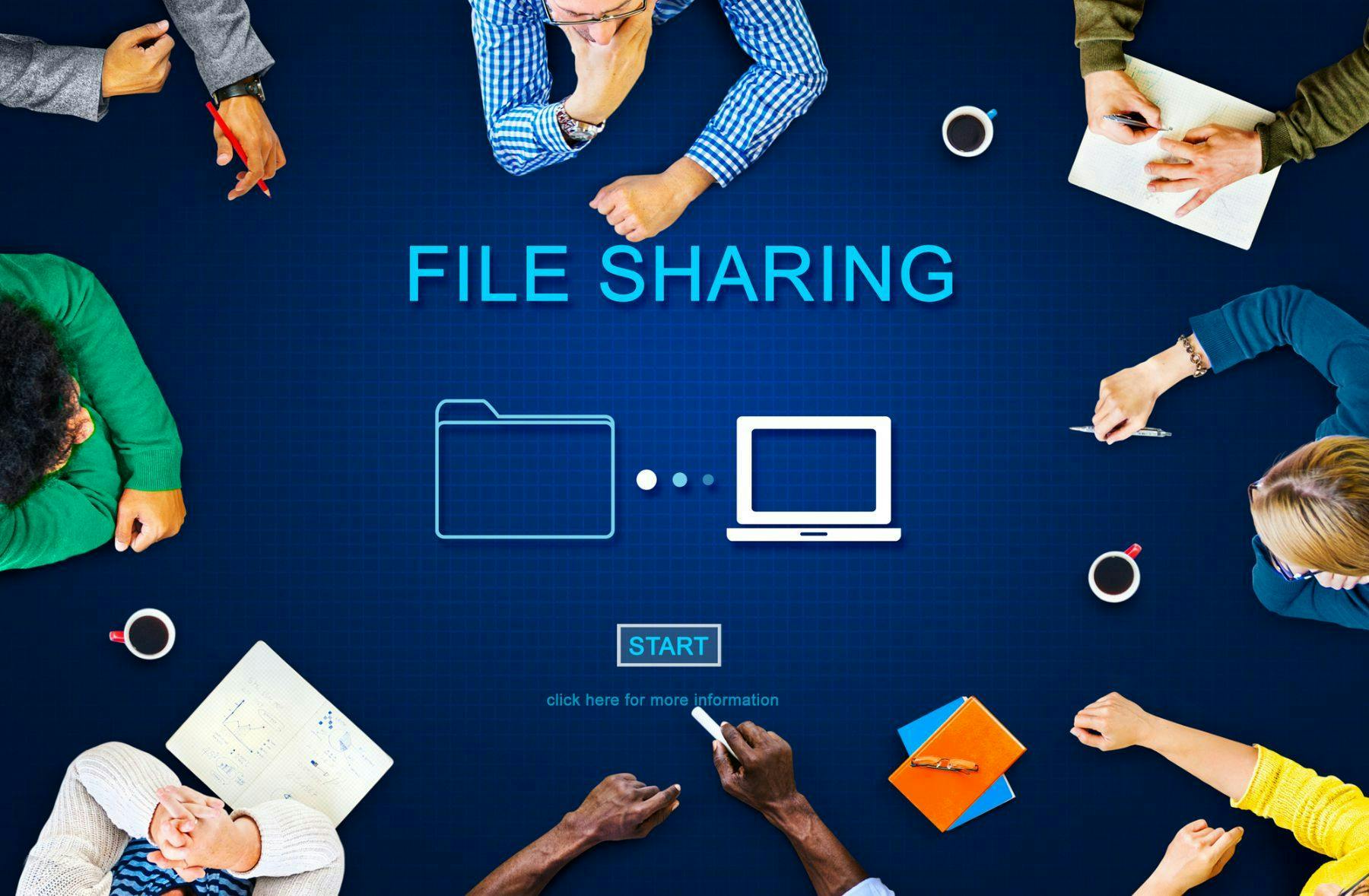Google Drive, Dropbox, and OneDrive—these household tech brands are great tools for simple file sharing and collaboration. But do they belong in a business setting? The research says no. Although these free file sharing platforms serve as great tools for personal use, they can also offer risks to your organization as a whole. Here are 10 reasons to ditch consumer-grade file sharing as it can potentially harm your organization. After all, wouldn’t you rather be safe than sorry?
1. They lack close monitoring and security features
Most consumer-grade products, such as DropBox or Google Docs, are meant for collaboration and simple, easy consumer use. In short, these user platforms were built for the goal of efficiency, not security. Considering many of these platforms are free, you may find yourself in a pickle when you receive a cybersecurity threat. With limited support from larger companies, these consumer products should not be used to handle secure or sensitive documents (such as financial documents or legal information) due to a lack of data management.
In contrast, enterprise-grade file sharing tools include features that allow IT managers and administrators to monitor for rogue or abusive users. Activity logs are helpful for monitoring suspicious activity—such as a sudden increase in file activity. In many cases, these logs are used to detect ransomware attacks or data breaches so that you can stay on top of it all. There are also options, like AES encryption, that can counter breaches and abuse of any data that is lost.
In highly competitive industries, managing risk is essential for keeping a company’s intellectual property safe and revenues flowing. According to Skyhigh Networks, 92% of companies have their credentials for sale on the dark web due to rogue employees or hackers finding credentials in places such as emails or servers.
2. You lose full control of your data
Your data is not guaranteed to be your own. When you use consumer-grade solutions, your data can be hosted anywhere in the world. Accepting the risk of data loss or a breach of business-critical information is not a smart choice. Not to mention, Google Drive adjusts its terms and conditions often, meaning any privacy adjustments will most likely go unnoticed. It took weeks for a user to find this little term back in 2012.
“Some of our Services allow you to submit content. You retain ownership of any intellectual property rights that you hold in that content. In short, what belongs to you stays yours.
When you upload or otherwise submit content to our Services, you give Google (and those we work with) a worldwide license to use, host, store, reproduce, modify, create derivative works (such as those resulting from translations, adaptations or other changes we make so that your content works better with our Services), communicate, publish, publicly perform, publicly display and distribute such content.”
Once the word got out, users started complaining, and Google responded by modifying the terms to subdue the consumer backlash.
3. They are not made for compliance
Healthcare providers, hospital contractors, and financial organizations are familiar with the standards set forth to protect Personal Health Information (PHI) or identification information.
Anyone who contracts or interacts with PHI must be HIPAA compliant in their file sharing and servers. In short, HIPAA compliance requires security features and transparency for IT administrators. For more information on what exactly is required for HIPAA compliance, read more here.
4. They are not built for administration or visibility
One of the root causes of weak compliance is the lack of visibility and administration. An enterprise organization must invest in quality IT staff who can exercise their best judgment and expertise.
Consumer-grade products offer base-level transparency with simple permissions, such as viewing who edits a document; but enterprise-grade products expand on these features. For instance, SmartFile’s platform allows managers to control permissions on a granular level.
Granular user permissions ensure that the right people have access to their corresponding documents. Not only can a file owner control how long a client can access information on a URL, but a Systems Administrator can ensure everyone in the company (even the CEO) only has access to the information necessary to complete their work. This lessens the effectiveness of some ransomware strains that “feed” on accessible information.
5. They run the risk of getting hacked
In 2012, Dropbox was victimized by a phishing scam that took internal information that allowed access to several Dropbox accounts. After finding the source of the issue, Dropbox had to develop more safety features to mitigate the damage.
This reactive approach shows that consumer-grade products aren’t concerned with the latest viruses or security. Their focus is on user-friendliness and convenience within the consumer experience. This is not surprising and, in fact, makes sense as Dropbox sources revenue from happy customers who seek simple storage solutions—like storing masses of photos or basic documents. On the flip side, business-grade platforms will be more concerned with cybersecurity inherently because of the type of information stored in the platforms.
6. Shadow IT
As the popularity of “Bring Your Own Device” (or BYOD) rises in the workplace, employees can face more risk than expected. One-third of tech purchases in a company are made by people who don’t report to the CIO. Employees bringing in consumer-grade products opens up a host of problems for a company.
In fact, 35% of data breaches are caused by employee negligence, such as user low-security products or infected removable storage media. Combating Shadow IT requires conducting audits, providing practical alternatives to consumer products, and increasing communication.
7. Sync stinks!
Many consumer products, such as OneDrive, rely on sync. Sync leads to a host of issues between conflicting versions of a document (especially when some editing has to be done offline), slow upload time in bad connections, and even accelerating encryption viruses such as locky ransomware. Unless sync is vital for company operations, it is best to cut it out of the picture.
8. Operator error – coupled with no oversight
Remember that statistic mentioned above? 35% of data breaches are employee negligence or error. Yes, “operator error” could be the reason your business files might become compromised.
To make matters worse, consumer products don’t allow for IT oversight to help solve those error moments. Instead of having access to the system or overriding errors, IT managers must now troubleshoot on an individual basis. With the average organization having 175 collaboration tools and 61 file sharing services, this means valuable IT money and resources are down the drain.
9. They are not built to integrate into your existing infrastructure
Running an efficient business requires strategic allocation of resources. Consumer-grade tools don’t add value to the organization but tend to suck time away from IT personnel.
SmartFile’s on-premise file sharing solution integrates directly into your network and adds enhanced security for file sharing and storage. Furthermore, SmartFile is HIPAA compliant, so if you ever anticipate contracting in the healthcare industry, SmartFile has you covered.
10. They’re generic and lack personal branding
While the most trivial of these issues, branding helps bring a professional polished look to clients and leads. When you use customizable platforms, you have the opportunity to strengthen your branding and presence. Imagine sharing a secure link with a client, and the landing page appears with the branding you selected (picture your logo and color scheme).
In short, why would you settle for loose ends? Secure file sharing for business requires enterprise-ready platforms built for heavy lifting and keeping your data safe. Don’t expose yourself to risk with consumer-grade products. SmartFile is here to make your work life easier, taking cybersecurity worries off of your plate.
Ready to level up? Start your SmartFile free trial today.


